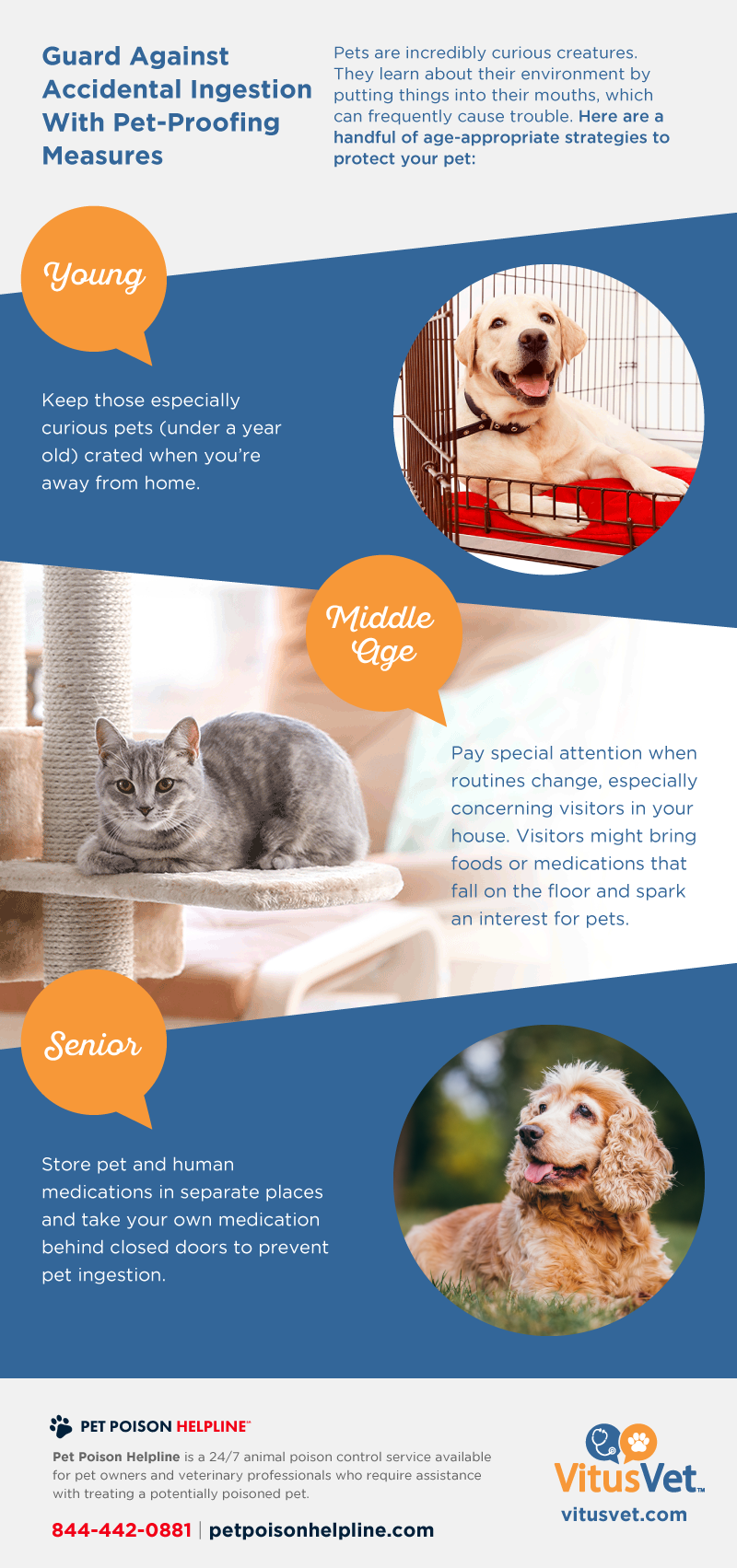With March designated as Pet Poison Prevention Awareness Month, now is the perfect time to assess how safe your home is for your pet. We interviewed our partners at Pet Poison Helpline to learn more about the potentially harmful substances commonly found in homes and what pet owners can do to make sure their pets stay happy and healthy.
Pets use their senses to adapt to their environment, but sometimes they don’t act in their own best interest. They can get into certain foods and substances that can be both toxic and harmful to their health. Pet owners don’t necessarily know how to safeguard their homes from these substances or what they should do in the event their pet gets into a harmful substance.
Check out our Pet Poison Awareness Infographic to see how you can make your home safer for your pets:

How to Protect Your Pets From Accidental Ingestion:
Pet owners need to take the proper precautions to make sure their pets don’t get into something that can be harmful to their health. According to the Pet Poison Helpline, a good rule of thumb is: “If a toddler can get to it, so can your pet. Be sure to toddler-proof your home.” Pet owners can help make their home safer for their pets by:
- Transferring pet and human medications from counters and tables to higher cabinets.
- Moving insect bait or rodent traps that might be on the floor to hard-to-reach areas.
- Shifting chemicals like window cleaning products and fertilizer up out of a pet’s reach.
While these precautions can help prevent accidental ingestion, they are not fool-proof. In the event your pet does ingest a toxic substance, it’s important that you have as much information as possible about the substance.
- Keep a list of all medications, the strength and the quantity of pills in each bottle, and the purchase date. This information will help your veterinarian or poison control agent determine the amount ingested and any subsequent therapy needed for your pet.
- For rodenticides, pesticides, and fertilizer: take a picture of the original package along with the EPA regulatory number (EPA Reg#). This number can help locate all active ingredients.
Always seek professional guidance before you attempt any at-home therapy with your pet.
Should your pet get into a harmful substance, pet owners should not attempt to induce vomiting. This can cause more harm than good and result in a much more dangerous situation for you and your pet.
How to Make Your Home Safer For Pets of All Ages:
Not all pets require the same necessary precautions to keep them out of harm’s way. There are certain measures pet owners can take depending on the age of their pet.
Young Pets:
Much like toddlers, puppies and kittens require extra levels of attention in order to keep them safe. When you’re away from home, make sure to crate or kennel your younger pets, especially those under a year old, so they don’t get into any dangerous substances when you’re not around.
Middle-aged Pets:
As pets get older, they tend to get less curious. As a result, pet owners need to pay extra attention when there’s a change in routine. This happens a lot when a visitor enters your home. Visitors may not be aware of how curious your pet is and may bring in foods or medications that pique your pet’s interest. Make sure anyone that enters your home is extra careful with any substance they may bring in.
Senior Pets:
Many senior pets require medication so they can stay healthy. While some human medications can be similar to pet medications, it’s important to know that human medications and pet medications are not the same. If your pet ingests human medication, the situation can be quite dangerous. Make sure to keep your medicine separate from your pets and make sure to pick up any dropped medication so your pet doesn’t ingest it.
About the Pet Poison Helpline:
Pet Poison Helpline is a 24/7 animal poison control service available for pet owners and veterinary professionals who require assistance with treating a potentially poisoned pet. Pet Poison Helpline has the ability to help every poisoned pet, with all types of poisonings, 24 hours a day. At $59 per incident (including all follow-up consultations), Pet Poison Helpline is the most cost-effective animal poison control service and is available in North America, Canada, and the Caribbean by calling 844-442-0881.
 by a veterinarian
by a veterinarian


